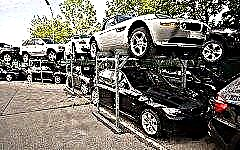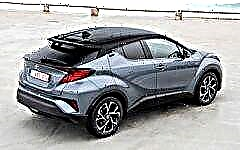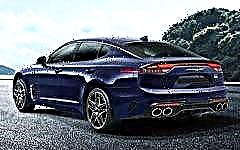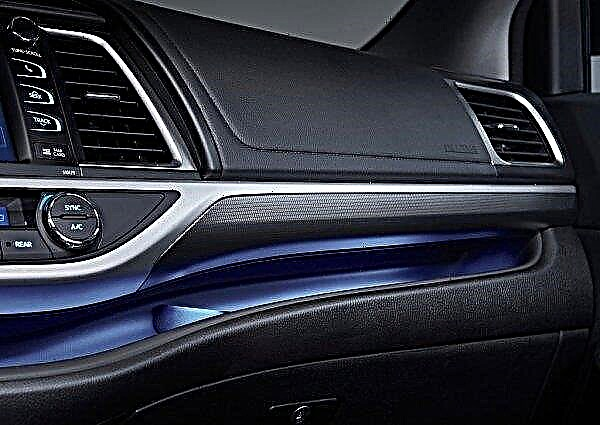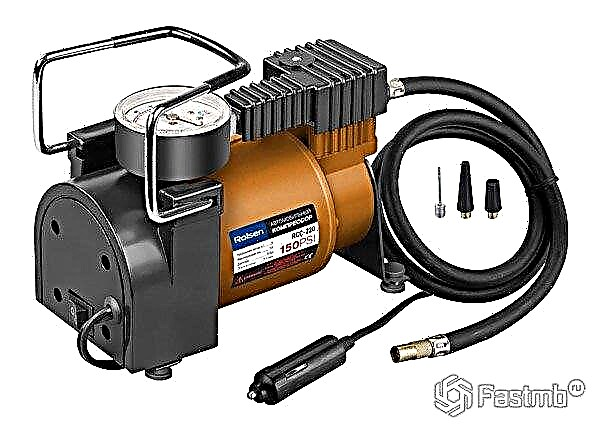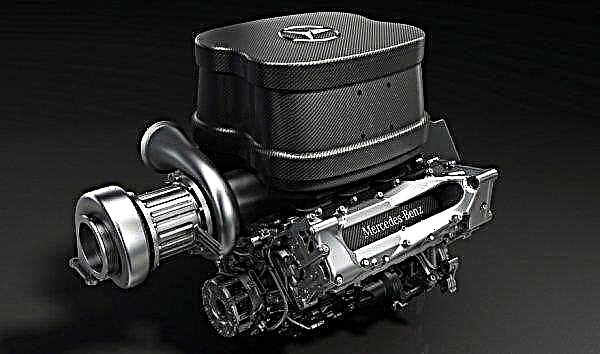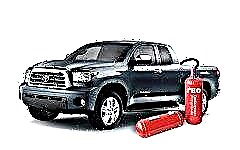

The content of the article
- Reasons for installing HBO
- The main advantages of gas equipment
- Parallel use of gas and petrol
- Features of the engine running on gas fuel
- LPG engines and ecology
- Simplified operation, fire hazard
- The main disadvantages of HBO
Installing gas equipment is a rather serious disruption to the design of the car. Such a decision is not always grateful, because after such a rework, the guarantee for the car will go into oblivion, as if it did not exist. However, despite this risk, many drivers decide on such a reconstruction, and not without reason.
Reasons for installing HBO

Motorists believe that the main reason for installing gas equipment is financial savings, if, at the same time, the indomitable rising prices for gasoline and diesel fuel are taken into account.
At the same time, it must be said that the installation of LPG, like any other reconstruction of the car, has its advantages, as well as disadvantages. Comparing both, many drivers often prefer gas as a fuel. Let's try to understand all these pros and cons so that in the future you can make the right choice for yourself.
The main advantages of gas equipment

The main advantage of gas fuel is its efficiency. Despite the fact that gas is consumed in a car by 20% more, it is almost half the price of gasoline.
But it should be borne in mind that such savings will only work for you if you operate the car at maximum intensity. Otherwise, the benefits of installing such equipment will become highly questionable.
Also, do not forget about the fuel consumption indicator that is available on the engine of your car. If this figure does not cross the border of 6 liters per 100 kilometers, then you need to think once again about switching to gas fuel.
The reason for making such a decision may be the following circumstances: with an engine with a small volume, as well as with low mileage, your costs for purchasing gas equipment will pay off for too long, especially if you take into account the difference in the price of one liter of gasoline and one liter of gas.
Parallel use of gas and petrol

The benefits of the parallel use of gas and petrol fuels will be primarily appreciated by drivers who need to make regular flights over long distances. With this equipment, you have an additional margin of vehicle mileage. That is, you will be able to travel a sufficiently long distance without refueling and, thus, avoiding questionable gas stations that may come across far from major cities.
As an example, imagine that you are driving on gas for a certain part of your route, and after it is over, you immediately switch to gas. Or vice versa. In addition, many motorists use this strategy: on large highways, where it becomes necessary to overtake at high speed, they use gasoline. And within populated areas where high engine power is not required, they switch to gas supply.
Features of the engine running on gas fuel

Many car owners have repeatedly noticed from experience that a gas engine operates with less noise and is much more stable than a gasoline engine. This feature is easy to explain: the octane number of gas exceeds that of gasoline and is approximately 110.
Thanks to this very circumstance, the gas engine runs smoother and smoother. For the same reasons, the percentage of vibration and noise is reduced. In developed European countries and in the USA, attention is paid to such a negative manifestation as noise pollution of large cities, and there the advantage of HBO is undeniable. In Russia and the CIS countries, this problem is not yet so urgent, but, as you know, progress does not stand still.
Many motorists who prefer gas-cylinder equipment, not without reason, believe that gas-powered engines have a longer service life than those units that consume gasoline. And indeed it is.
This is explained by the fact that propane-butane in the fuel supply system is in liquid form. Penetrating into the cylinders of the internal combustion engine, it instantly goes into the desired gaseous state, ready for use.
Compared to gas, gasoline does not possess such a property, despite the fact that developers from different countries strive to bring the working mixture of gasoline and air as close as possible to the gaseous state.
Note: LPG on methane is not used in passenger cars, because such a system is too large in size and weight.
Ignition on a gas engine works much more efficiently. Despite the fact that gas does not burn as quickly as gasoline, the process of this combustion is much more uniform than the process of combustion of a gasoline-air mixture. And this circumstance gives the following advantages:
- Reduced cylinder and piston shock loads.
- The high octane rating of the gas fuel minimizes detonation and its negative effects.
- The main argument in favor of LPG is a longer process of engine wear. The durability of a gas-fueled engine is 45% higher than that of a gasoline unit.
In addition, the gas mixes very evenly with the air and therefore no deposits remain on the cylinder walls after it. For the same reason, engine oil, which is poured into a gas engine, is less contaminated, its viscosity is extended for a longer time and, accordingly, the service life of the oil between replacements is lengthened by 40%.
It should also be said about the protective oil film in the engine, which is powered by gas - it does not disappear from the cylinder walls. All these features in their mass indicate that the use of gas as a fuel really increases the service life of the engine.
By the way, when LPG is installed, the life of the candles also increases by about 40 percent. The fact is that during the combustion of gas fuel, resin deposits do not accumulate inside the cylinder and, accordingly, carbon deposits form on the candles much less. This is facilitated by the high concentration of hydrogen in the gas fuel.
LPG engines and ecology

Units running on gas are not as toxic as on gasoline - this is a scientifically documented fact. Gas is indeed a cleaner fuel than gasoline. According to the testimony of BOSCH specialists, the use of gas in its ecological purity loses only to hydrogen motors and electric vehicles. Let's list the main environmental nuances of using gas fuel:
- The use of HBO significantly reduces the amount of harmful substances that pollute the air.
- The gas does not contain sulfur.
- There is no need to add additives to the gas.
- Gas is three times cleaner than unleaded gasoline.
- In the cylinders, the gas burns out completely, thereby reducing the CO level.
Indeed, the environment is much less polluted by gas-fueled machines. However, in Russia and in the CIS countries, this advantage is not at all appreciated.
Not everything and not always we need to learn from the collective West, but this is the case when it is worth paying attention to the experience of those European countries in which gas-fueled cars are welcomed, and their drivers are even provided with benefits.
Moreover, in some cities in Europe, driving restrictions are imposed on diesel and gasoline engine drivers. Owners of electric and gas vehicles are not subject to these restrictions.
Simplified operation, fire hazard

Modern LPG equipment is quite easy and simple to use:
- automatic gas injection automatically switches to the desired type of fuel;
- the system conducts self-diagnostics, the results of which are signaled to the driver, and also controls the remaining gas in the tank;
- the owner of the car at any time can change the type of fuel using a switch in the car.
LPG equipment has the lowest risk of explosion or fire: a gas leak cannot be as dangerous as a gasoline leak. Even if the cylinder or gas pipeline is damaged, the gas will immediately begin to cool.
For example, at an outdoor temperature of +20 degrees Celsius, the gas temperature when the system is depressurized will drop to –130 degrees. After that, the contents of the cylinder are transformed into a gaseous state and evaporate.
And if the outside temperature is below zero, then there is no need to talk about the risk of gas fire - it is simply canceled. The listed properties of gas, which distinguish it favorably from flammable gasoline, also testify to the advantage of gas-fueled engines.
This fact is confirmed by numerous experiments of both domestic and foreign experts. For example, the Germans (ADAC club) repeatedly imitated the most powerful test accidents, in which the car was hit exactly in the part where the gas cylinder was located.
In this case, all gas equipment was damaged to the maximum extent, and after that the damaged car was set on fire. However, the results of this test were in favor of the gas equipment.
Experts have found that if a serviceable LPG is installed correctly, it will not pose a danger to the driver during operation. Even in the event of an accident, a gas cylinder is less dangerous than a gas tank.
By the way, the physical strength of a gas cylinder significantly exceeds the strength of a gas tank. So if there is a fire in machines equipped with gas equipment, it is, as a rule, a consequence of gross violations of the rules for the use of gas equipment.
Tragic consequences of this kind can arise during the operation of a knowingly faulty LPG. The same thing happens with gasoline engines when safety rules are violated.
Another plus of gas fuel is the timely sensation of a smell during a leak. To do this, special components (mercaptans) are added to the gas, which, when leaked, spread a noticeable odor.
And now a few strict rules for handling gas fuels:
- Never fill the cylinders with household gas.
- Observe the maximum allowable pressure in the gas container and never break this rule.
- Follow the LPG manufacturer's recommendations carefully.
- Focus on the requirements of professional gas service workers.
Here are the basic rules that you just have to follow. If you nevertheless find even the slightest signs of a gas leak in the engine or find an odor in the trunk or the passenger compartment, immediately send the car for an LPG leak test. Remember: using a car with this problem is strictly prohibited!
The main disadvantages of HBO

The biggest disadvantage of LPG equipment is its cost. Buying a modern system and installing it on a turnkey basis can cost you at least $ 500. But at the same time, you must remember that you are investing this money in future savings, and considerable at that. True, the dividends will not come immediately, but over time and taking into account many conditions.
Gas engine power
If you decide to switch to natural gas, be prepared to reduce your car's power output by up to 15%. This will be due to the fact that the gas combustion rate lags significantly behind that of gasoline.
Especially you will feel it when you need a quick overclocking. To some extent, this drawback will be compensated for by the smooth operation of the engine, especially during acceleration, as well as the absence of jerking and failures. This is all due to the slow combustion of the gas.
Attention! In winter, only run the engine on petrol! Cold starting on gas has a detrimental effect on the gearbox diaphragm and shortens its service life. Switch to gas only when you warm up the engine to 50 degrees.
Conclusion
So, you opted for gas fuel and decided to install LPG. In this case, review this article again and try to take into account all the pros and cons mentioned above. Indeed, it often happens that for one motorist the use of gas equipment is completely unprofitable, while for another it serves as a serious means of financial savings.
In addition, before purchasing and installing LPG equipment, do not forget that it is subject to registration, and after installation will require increased attention and care. However, it is quite possible that it is for you that there will be much more advantages in HBO than disadvantages, and this system will reliably serve you for many years.

